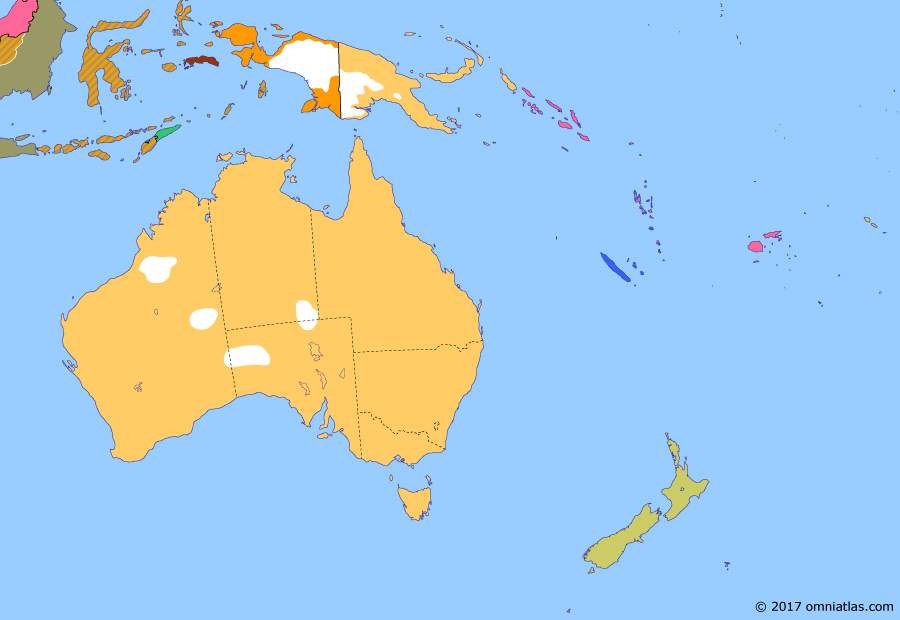Australasia 1950: United States of Indonesia
25 April 1950
25 Apr 1950
Decolonization of the Pacific
1788–1859 Australasian Colonies
1859–1901 Colonial Consolidation
1901–1941 Southern Dominions
1941–1945 War in the Pacific
1945–1987 Decolonization of the Pacific
1987–pres Modern Australasia
United States of Indonesia
Dutch efforts to reconquer Indonesia in 1947–49 brought condemnation by the United Nations. Backing down, the Netherlands accepted the independence of the United States of Indonesia - a federation which included both the nationalist Republic of Indonesia and 15 states established by the Dutch. However the Republic quickly began to assert control over the other states, provoking the south Maluku Islands to declare independence.
